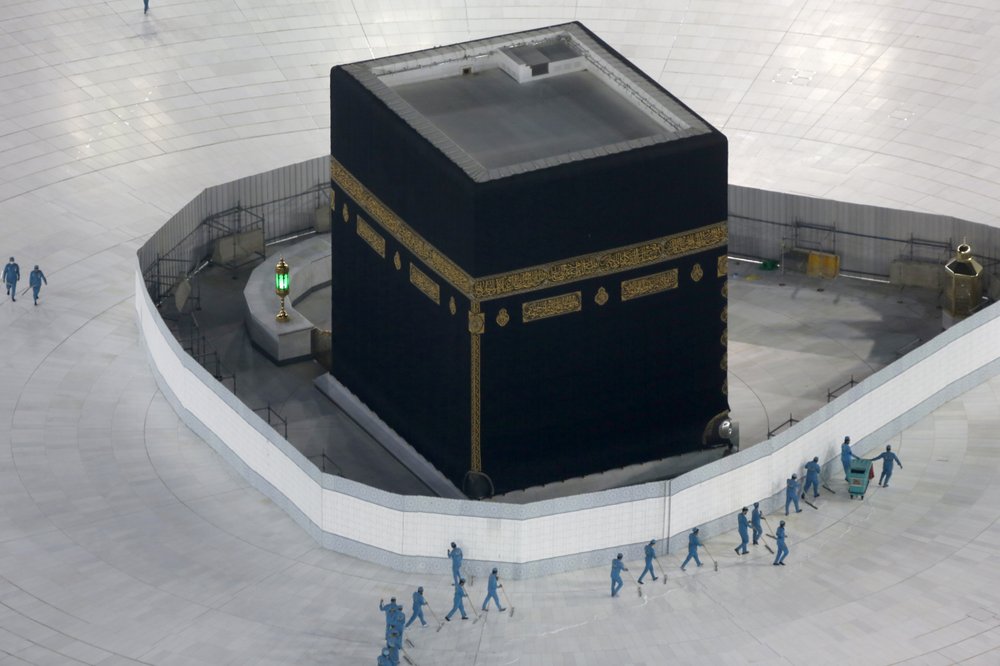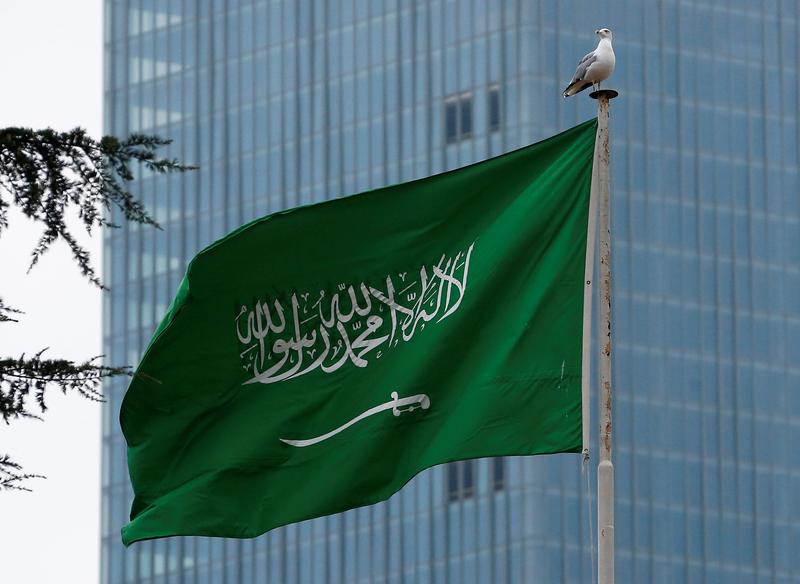
DUBAI, United Arab Emirates (AP) — Saudi Arabia has issued guidelines for the 1,000 or so pilgrims that will be allowed to perform the hajj pilgrimage in Mecca later this month, an experience that will be unlike any before because of the coronavirus pandemic.
The pilgrims will be only be able to drink holy water from the Zamzam well in Mecca that is packaged in plastic bottles, and pebbles for casting away evil that are usually picked up by pilgrims along hajj routes will be sterilized and bagged ahead of time. Pilgrims will also have to bring their own prayer rugs.
The guidelines were announced on Monday as Saudi authorities prepare to carry out a very limited hajj, which for the first time will not include pilgrims from outside the country. Instead, the kingdom said that 70 percent of pilgrims allowed to participate this year will be from among foreign residents of Saudi Arabia while 30 percent would be Saudi citizens.
Saudi pilgrims will be selected from among healthcare workers and security personnel who have recovered from COVID-19, the illness caused by the virus. The government said their selection represents a “token of appreciation for their role in providing care” during the pandemic.
Saudi Arabia has one of the Middle East’s largest outbreaks of the virus, with infection rates rising by 3,000-4,000 cases daily. More than 213,000 people have contracted the virus in the kingdom so far, including 1,968 who have died.
The new guidelines also mandate that foreign residents in Saudi Arabia who want to participate in this year’s pilgrimage should be between the ages of 20 and 50, and that have not performed the hajj before. The pilgrims will have to quarantine before and after the hajj, and they will be tested for the coronavirus. Those eligible have until Friday to submit an application through the kingdom’s Hajj Ministry’s website.
The hajj is not only a once-in-a-lifetime requirement for Muslims but also a chance to wipe away past sins and connect with Muslims from different walks of life.
Saudi Arabia dramatically scaled back the hajj due to concerns about overcrowding at the annual pilgrimage, which usually draws 2.5 million people. The crowds move, pray and stand in extremely close proximity, often squeezed shoulder-to-shoulder, as they carry out five days of rites around Mecca.
Saudi Arabia said its decision to curtail the hajj was aimed at preserving global public health because of the risks associated with large gatherings.
Pilgrims normally crowd and push their way toward the cube-shaped Kaaba, which is Islam’s holiest site and the metaphorical house of God. This year, authorities said anyone participating in the hajj will not be allowed to touch the Kaaba as part of the new safety measures.
Pilgrims this year will also have to wear masks, maintain physical distance during prayers and sleep in tents that follow guidelines on social distancing.
Elsewhere in the Mideast, Israel’s parliament early on Tuesday passed an emergency bill allowing the government to bypass the house in making immediate decisions on combating a renewed outbreak of the coronavirus.
Lawmakers supporting the bill said it was essential, given the fast-spreading nature of the virus, but some opposition lawmakers decried the sidelining of the legislature as another step in undermining the foundations of Israeli democracy.
On Monday, the Israeli government reimposed new restrictions on the public, limiting gatherings and ordering reception halls, restaurants, bars, theaters, fitness centers and pools be shut down again.
Just weeks ago, Israel appeared to have contained its initial outbreak after imposing strict measures early on in the pandemic. But after reporting just a handful of new cases a day in early May, it has experienced a steady uptick following an easing of restrictions. Currently, Israel is reporting upward of 1,000 new cases a day — higher than its peak during the previous wave.
___
Associated Press writer Aron Heller in Jerusalem contributed to this report.
Image: In this March 7, 2020 file photo, workers disinfect the ground around the Kaaba, the cubic building at the Grand Mosque, over fears of the new coronavirus, the Muslim holy city of Mecca, Saudi Arabia. Guidelines were announced Monday, July 6, 2020 as Saudi Arabia gets ready for the 1,000 or so pilgrims that will be allowed to perform the hajj pilgrimage in Mecca later this month. The experience will be unlike any before which usually draws some 2.5 million people. (AP Photo/Amr Nabil, File)




